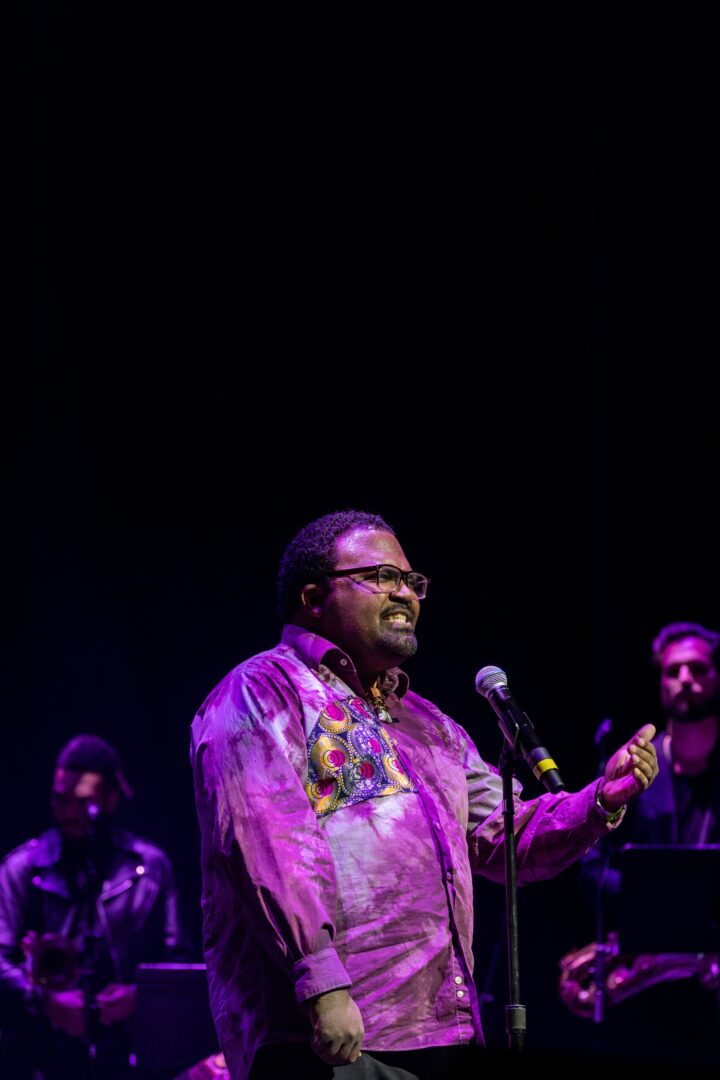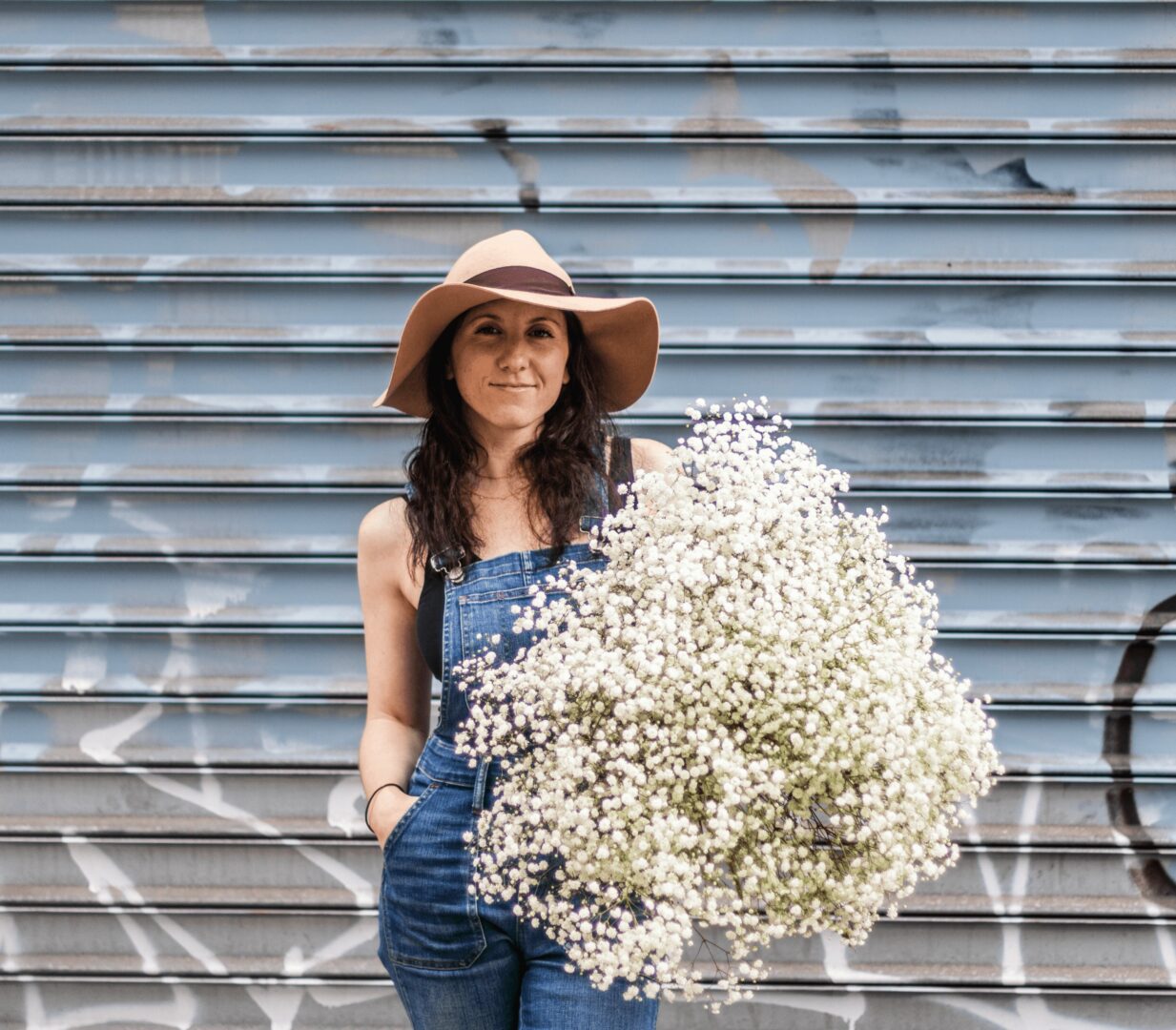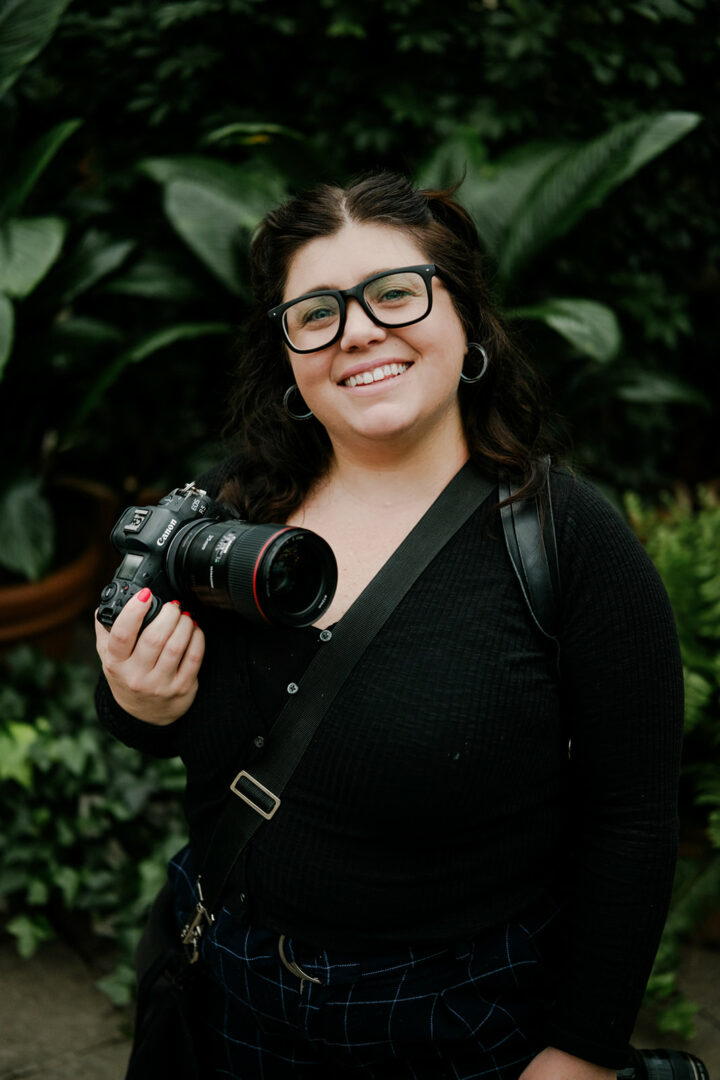Self-doubt and imposter syndrome have stopped far too many talented folks from going for their goals and reaching their true potential. Our hope is to host conversations that inspire folks to overcome imposter syndrome and help others as well.
Alisha Joy Arguello

The truth? I haven’t fully overcome it—I’m navigating it in real time.
I used to think imposter syndrome was something you “beat” once and for all, like a final boss in a video game. But what I’m realizing is that it shows up every time you expand into something bigger. Right now, I’m in that space again—stretching beyond what I’ve built so far. Read more>>
Mikaela Mcekron

If I were to define the word imposter I would define it as a state in which doubt and insecurity bullies you into a belief that you are not capable. The first step for me when overcoming imposter syndrome was to attack the source of my insecurities. I identified that I had a terrible habit of comparing myself to other people and I allowed my fear of not measuring up to stop me from even trying. After several years of a lack of productivity and hearing the muffled screams of stifled dreams and visions. I decided to lean truly into my faith which is in Jesus Christ. In scripture Romans 8:14-15: “You are a son/daughter of God and he is your Father” and another talks about being a special people in 1 Peter 2:9 both texts emphasize a sense of identity independent of talents, callings, and gifting. In really taking the scriptures and internalizing them I realized that there is only one Mikaela McEkron who has ever been created and there will never be another me. Why would I waste time replicating the life and talent of another when I was uniquely created to be myself. Sure there is always room for growth and sharpening your skills but I feel most confident and authentic when I unapologetically be myself wether that be through my art, the music I create or poetry and even the clothes I decide to adorn my body with. Imitation is flattery but Imposter syndrome is the enemy of creativity, uniqueness and fuels insecurity. Read more>>
Ashley Burks

I am not sure imposter syndrome is really ever overcome or goes away. Well, at least not at this point in my life. However, I will say my relationship with imposter syndrome has changed throughout my journey. When I first decided I wanted to be a therapist, my imposter syndrome was loud and critical, telling me things like, “How could you ever possibly be able to do this?” or “Cut your losses while you still can.” The reality is my imposter syndrome stemmed from fear, and because of this, in a backwards sort of way, it was mean to me in an attempt to keep me from experiencing failure. Read more>>
Jasmine Curtis

If I’ve ever doubted myself, I remembered whose shoulders I am standing on. Who am I to question where God has placed me?
At a young age my parents instilled in me that I could do anything that I put my mind to and I learned to not fear the outcome of doing my best. If I do my best, what else is there to do? As long as I am doing that, I’m taking care of business. Read more>>
Michael Payton

Overcoming imposter syndrome wasn’t a single moment of realization but an ongoing process of growth, self-acceptance, and proving to myself that I belonged—not by conforming, but by owning my unique path. Read more>>
Sara Goscha

Imposter syndrome has shadowed much of my professional life—from my early days in government work and consulting to my role on the national team at a Fortune Five healthcare company supporting twenty-eight health plans. Working primarily for Medicaid and Medicare populations, I have always been driven by a deep personal connection: my own experiences growing up poor. Read more>>
Maya Unique

I overcame imposter syndrome by continuing to share my results, even when I didn’t feel fully confident in them. By pushing through the self-doubt and posting anyway, I gained confidence and proved to myself that progress is more important than perfection. Read more>>
Paul Rentler

I can’t say that imposter syndrome has completely gone away, but I definitely feel it less and less as time goes on. At first, I struggled with it because I wasn’t sure of what I was doing. I was still searching for that inner voice that could reassure me that what I was creating had value. However, something shifted in my mindset once I started feeling confident in what I was trying to accomplish. The more I worked and the more I created, the better I felt about myself as a creator. Read more>>
Vasken Ohanian

Imposter syndrome hit me hard about 6-7 years ago. When you get out of music school, the first couple years feel really great and hopeful, but eventually the turbulent nature of the industry can start to get to you, especially during dry periods. Read more>>
Bob Hansen

It is something that I have, and always will struggle with. The only thing I have found that helps is conversation with peers and continuing to challenge yourself. Try and find your own voice and not compare yourself to others.
Reminding myself to try my best and even if I fail it’s okay, at least I tried and had a learning experience. There is no experimentation without failure. Read more>>
Tahl Powell

When it comes to imposter syndrome, I think it’s something that sticks with you, no matter how far along you are in your journey. I mean, even when you’ve reached the top, you might still have that nagging voice in your head saying, “Do I really belong here?” The key, I’ve found, is to acknowledge it, give it a little nod, and then keep moving forward anyway. In my experience, overcoming imposter syndrome in interior design was a mix of rolling up my sleeves, doing the work, and allowing myself to grow along the way. Read more>>
Jane Chirgwin

I am finding that experience helps counter imposter syndrome. Questioning your capability never really goes away, but it can be countered by years of having done the thing without anyone throwing you out or telling you that what you are doing is wrong. Also, looking around and seeing the truly unqualified in positions of power, while disquieting, shows that you can’t be as bad as that. Read more>>
Sean Battle

Any bouts I have with imposter syndrome get overpowered by one sentence: “ I may not know how to do a thing, but I know it ain’t suppose to be THAT.”
I can trace this to the first poem I wrote, and first performance, that made me realize I had “something:” Junior year, Pennsauken High School social studies class. I had to write a poem inspired by World War 1, and ended up writing one in the lunch period right before class, in the voice of a soldier in said war. Read more>>
Angela Aquino

I don’t believe one ever overcomes imposter syndrome, to be honest. It’s something that continues to raise it’s ugly head, even after you think it’s defeated. The trick, I’ve found, is to believe in what you do with your whole self. If you are passionate about what you offer and committed to your drive, the little voice urging you to silence and inaction will be drowned out, little by little, by a voice of confidence that can only come from following the path you know is yours. Practice, as they say, makes perfect. Read more>>
Laurie Hamame

I came to embrace imposter syndrome as a natural feeling that comes with any learning process.
As a wedding photographer, those feelings of self-doubt hit hard. In my area, I can name at least 20 photographers off the top of my head, so why would anyone choose me to capture such an important milestone when they could pick anyone else? Read more>>
Opal Hexen

I don’t think theres ever going to be a time where I don’t feel it honestly, I think I have learned more to just make art that I enjoy making and not worry if its going to be everybody’s cup of tea. I am glad and honored to have found some small success with creating what I enjoy, but I still get surprised when I am invited to do things or get opportunities I was hoping for. Read more>>
Suhani Sanghavi

Imposter syndrome was something I constantly felt (and still sometimes do) when I started Sakhi. At first, I was just designing for family and friends—safe, familiar, and without the pressure of calling it a ‘business.’ But taking that next step, putting my work out there, and asking people to trust me with their most important celebrations? That was terrifying. Read more>>
Veronica Grankina

I’ve explored many different careers before becoming an artist. I’ve been a public relations manager, wedding and portrait photographer, psychotherapist, change management consultant, and project manager. Each career shift was shaped by different circumstances—immigration, motherhood, the need to support my family, and the search for the right balance between flexibility and income and doing what I love. Read more>>
Hannah Fae

Even though I have been working towards a music career my entire life, a little voice in my head has told me that it just was not in the cards for me. It hadn’t always been this way. During childhood, I was a very confident and free spirited kid. Along the way, I have faced obstacles and had met people who tried to knock me down. When I first started facing these obstacles, it was easy to ignore them. However, after awhile, I started to wonder if they were right. Am I really as delusional as they say I am? Should I ty harder to blend in even thought that would sacrifice being true to myself? And so the negative self talk began. It felt as though I was getting wound up in a web of endless self deprecation. The goals I dreamed of accomplishing throughout my entire life had now turned into something I didn’t even want to think about. It made me too sad. After a while I had gone to therapy, did some self reflection, and started feeling like myself again. But the moment I found a real change within, was when I decided to pick up my pen again. I started writing music like I never had before. It wasn’t intentional, it just felt like the only I could do to let my emotions flow. Once I started writing, I couldn’t stop. It was fueling a part of my brain and my heart that I hadn’t felt in years. Every day I stated to feel more and more confident in myself again. Now here I am in 2025 as a professional singer and songwriter who is making music the main focus of my life each and every day. It is easier said than done, but never ever let anyone dull your sparkle. If you feel as though you were put on this earth to do something, do it. Read more>>
Drew Herrmann

Imposter syndrome is something I think many of us face. Those thoughts, “Am I ready for a job of this caliber?” or “Do I really have the talent to be here?” They creep in more often than I’d like to admit. Read more>>
Grey Grumm

I think imposter syndrome is something we all grapple with. It’s nearly impossible not to question yourself especially when you’re in the vulnerable position of sharing creative work. The self-doubt is amplified by our current reliance on social media and ‘likes’ to justify our existence. Rather than trying to overcome, why not embrace the insecurities or better yet, embrace the knowledge that there is room for everyone to make and do—the world needs more art. Read more>>
Kendall Vernon

Does anyone ever truly overcome imposter syndrome? Even now I still reckon with it, sometimes more so than ever. The more I build, the more is at stake. The fear of loss tags along with every creation like a shadow, and I’m not sure I believe there’s a way to deny it space next to us. When it gets really overwhelming, I breathe about it and let it do it’s thing. I let the worst case scenario play out in my head and then decide what I would do about it if everything fell apart today. It turns out, every time, that my reaction to the worst case is the exact reaction I have now, despite the anxious feelings that are wearing on me – to take the next best step, accepting the circumstances as they are. Because what else can you do? In short, my approach to dealing with imposter syndrome is to let it tag along, let it throw its fits when it wants to, like a toddler having a tantrum, and when it’s cooled down, keep moving. Progress is a rollercoaster ride! Read more>>
Alice Yoon

Imposter syndrome is so real! It can stem from lack of confidence, self-esteem, but also from being the new person in a new industry, from starting from scratch, etc. I definitely had my fair shares of imposter syndrome. I’ve dabbled in various industries of work including service, public health (nonprofit), technology sales. The 2 main things that helped me overcome imposter syndrome is 1) being open to new opportunities and 2) carrying over your soft skills to continue your journey. Read more>>
Annie Harris

Imposter syndrome seems to be a common denominator for any artist, or any person really. I don’t think there’s a definitive solution to overcoming it. I’ve had my fair share of thinking the worst about my identity and what that means for my work. But, as I’ve gotten older, and more confident in my abilities when those feelings come about, I feel them. Simply put, I let the thoughts and feelings wash over me like a mist. By acknowledging the falsehoods of what my brain thinks in that moment, I am able to process them more effectively instead of simply ignoring them. I’ve noticed when I am not creating just for the pure joy of creating I am diminishing the part of myself that has no expectations. As artists, we hold high standards for our finished projects that we can end up neglecting the process entirely. For me, that leads to feeling insecure about my skill. So in times of self doubt – I create, just to get out of my head and that’s usually when the magic happens. I don’t think I’ll ever beat imposter syndrome, but learning how to gain new perspectives in times where I doubt myself pushes my photography forward in a new way. Read more>>
Kara Mayer Robinson

To be honest, sometimes I have to pinch myself.
I may be in the middle of a texting conversation with Talia Shire (Connie Corleone! From The Godfather! Yo, Adrian from Rocky!). Or getting a voicemail from Spike Lee. Or driving away from Jeff Garlin’s house in the Hollywood Hills after he revealed, for the first time, that he was suicidal after his character was written off The Goldbergs. Read more>>
Justin Adam

I believe many people experience imposter syndrome as it can be hard to believe that you are in fact enacting a passion or dream. For me, my journey started in mental health a decade ago working in direct care with acute patients in treatment facilities. This experience, as intense as it could be at times, gave me a wealth of base knowledge when it comes to helping those in need. I continued to hone this skill working with children of many backgrounds and disorders which gives you a degree a confidence in dealing with any extreme conditions. I truly believe that experience is the main force in overcoming imposter syndrome. As I began to read and study about how the mind works through the lens of hypnosis, everything started to come together and make sense, however there was still the question of “But… can I do it?”. Having a solid base in theory is half the equation because it is important to have the understanding to be able to implement into the experience. What was left was to take the leap and see if I could bring about change in the same rapid manner that the studies in the hypnosis book described. I began my own practice and of course struggled at times, but overall the feedback was quite spectacular. When you start to hear people tell you how the process that you help guide them through was the only thing that has helped and completely changed their lives, that is when you put the final nail into the coffin of feeling like an imposter. It’s the feedback and knowing you have put in all the effort to become who you have envisioned that diminishes that doubting imposter inside. Read more>>
Krizzha Dee

I often struggle with imposter syndrome because as an artist, seeing so many talented creators around me makes me doubt my own abilities and the progress I’ve made. I used to think I had to know everything before I could consider myself good enough. But over time, I realized that being a perfectionist and setting unrealistic expectations can hurt my confidence. Read more>>
B West

Overcoming imposter syndrome has been an ongoing journey, one that I’m still navigating. A key part of this has been surrounding myself with a supportive queer community, especially women and gender-expansive people, whose shared experiences helped me realize I’m not isolated. I’ve also learned the value of seeking advice and support from trusted mentors in the music industry. Asking for help has taught me to set aside my ego and reconnect with the true purpose behind my art. Read more>>
Wendy Merino-olivares

I used to struggle with imposter syndrome, constantly overthinking and doubting myself. But I realized that overthinking is the greatest killer of talent and authenticity. To overcome this, I had to do deep inner work what I call working on my ‘shadow self.’ I like to describe it like Shrek says, ‘Ogres are like onions, full of layers.’ Peeling back those layers led me to embrace my true self completely, not just parts of me. Read more>>
Lauren Fernandez

Ooo the dreaded imposter syndrome, this is something that was really hard to overcome and still gets me from time to time. I taught elementary school for about 10 years before switching careers to become a florist. I definitely had that mindset of needing to do what I went to school for, and having my bachelors and masters in education, I felt that this was my forever path. When I started dipping my toes into the floral world, I started small. I interned, cleaning stems and sweeping floors, then started managing a floral studio, and eventually got some design experience during my down time with leftover flowers. Because I had no formal training, I didn’t have much confidence in my early creations. Read more>>
Jerel Agatep

I beat imposter syndrome by owning my story. Moving to the U.S. at 15, I was self-conscious about my accent and thrown into a world I didn’t fully understand. My first job was as a dishwasher, and I worked my way up—busboy, cashier, waiter, cook—before putting myself through UC Irvine, saving up for law school, and earning my J.D. at UC Hastings. Read more>>
Rose Qehaja

I think imposter syndrome is something that comes in waves—it doesn’t just disappear one day, but I’ve learned how to quiet it. When I first started Rosemary Floral Co., I struggled with feeling like I wasn’t “experienced enough” or that I needed some kind of permission to take up space in the wedding industry. But I kept reminding myself that everyone starts somewhere, and the only way to gain confidence is by doing the work. Read more>>
Larry Roberts

I overcame imposter syndrome by finally recognizing the value of my experience and expertise in the podcasting industry. After spending 25 years in the corporate world and more than a decade as a digital brand influencer, I came to understand that my knowledge and accomplishments weren’t just relevant, they were rare. Read more>>
Damon Darrell

Since transitioning from corporate America into the world of entrepreneurship, I have often wrestled with what many refer to as “imposter syndrome.” While my background is in graphic design and business, I had no formal training in video production—yet I quickly fell in love with the craft of filmmaking. Read more>>
Tracy Ullman

You never realize – as someone who is creating things alone and in your own mind – that so many people suffer from “imposter syndrome”. My parents were not very enthusiastic about me going into the arts and insisted that what I was doing was a “hobby” to be done in my spare time. So that began my sense that thinking creatively was not something I could do entrepreneurially. Then, there were people in television and film who are, for lack of a better word, sociopaths and “cloak and dagger” operators: people who made me work hard and never gave me constructive feedback, or even worse, stole my ideas. I’m pretty sure I’m not the only one this happened to, but it messed with my head in that I thought I could never overcome my lack of experience or standing in the industry. It wasn’t until I was confronted with a desperate need for work that I started thinking laterally about to get it. I began creating in earnest, failure be damned. I started thinking bigger and on a wider scale and when I became successful, then I finally believed – around the age of 50 and after almost 30 years in television and film – that I was not an imposter. Read more>>
Mona Marandy

Imposter syndrome is very real and more common than many people realize. When I first started, I struggled with feelings of inadequacy, which is quite normal. What truly helped me find the courage to continue my education and invest in my skills was the incredible feedback from my clients, the unwavering support from my family, and the mentorship of Lola Melani. She consistently reassured me of my talent and progress, which motivated me to persist. Read more>>
Carole Fisher

The truth is I never really ‘overcame’ imposter syndrome because, in many ways, I think it’s just a constant we face as part of growth. Some days I feel less confident, some days I feel more capable—but no matter what, I’m always willing to make a mistake and learn from it. I’ve found that action is the best antidote. The more I focus on doing the work instead of questioning whether I belong, the quieter that little voice of doubt becomes. Read more>>
Amber Smith

Imposter syndrome is very real, especially in the beginning of starting a business. I remember in the first few years, when people asked me what I did for a living I felt like I was lying telling them that I work for myself as a photographer. As the years went on though and my skills improved so did my confidence. I think overcoming really just came down to gaining confidence in my abilities as a wedding and portrait photographer. Read more>>









